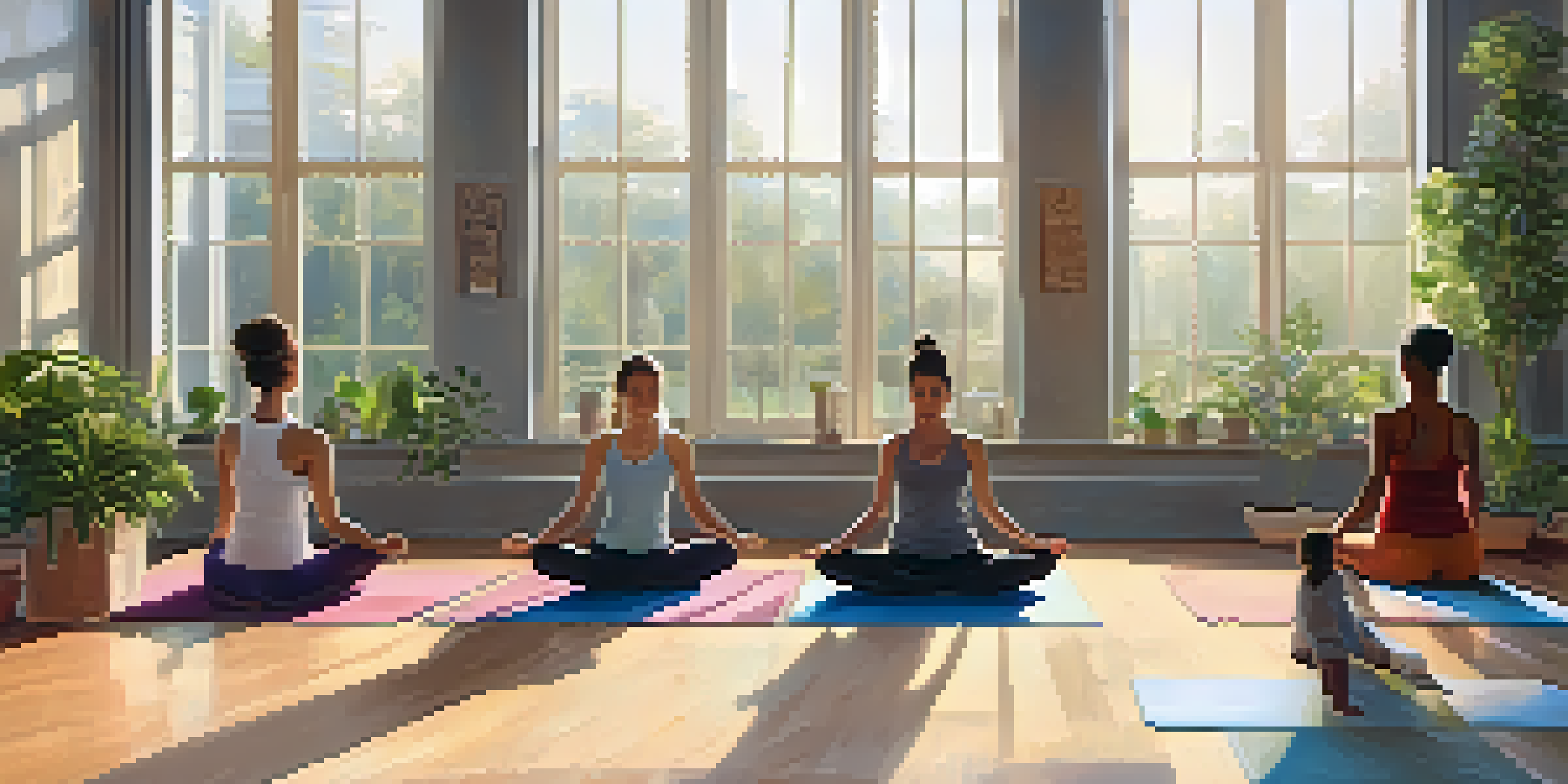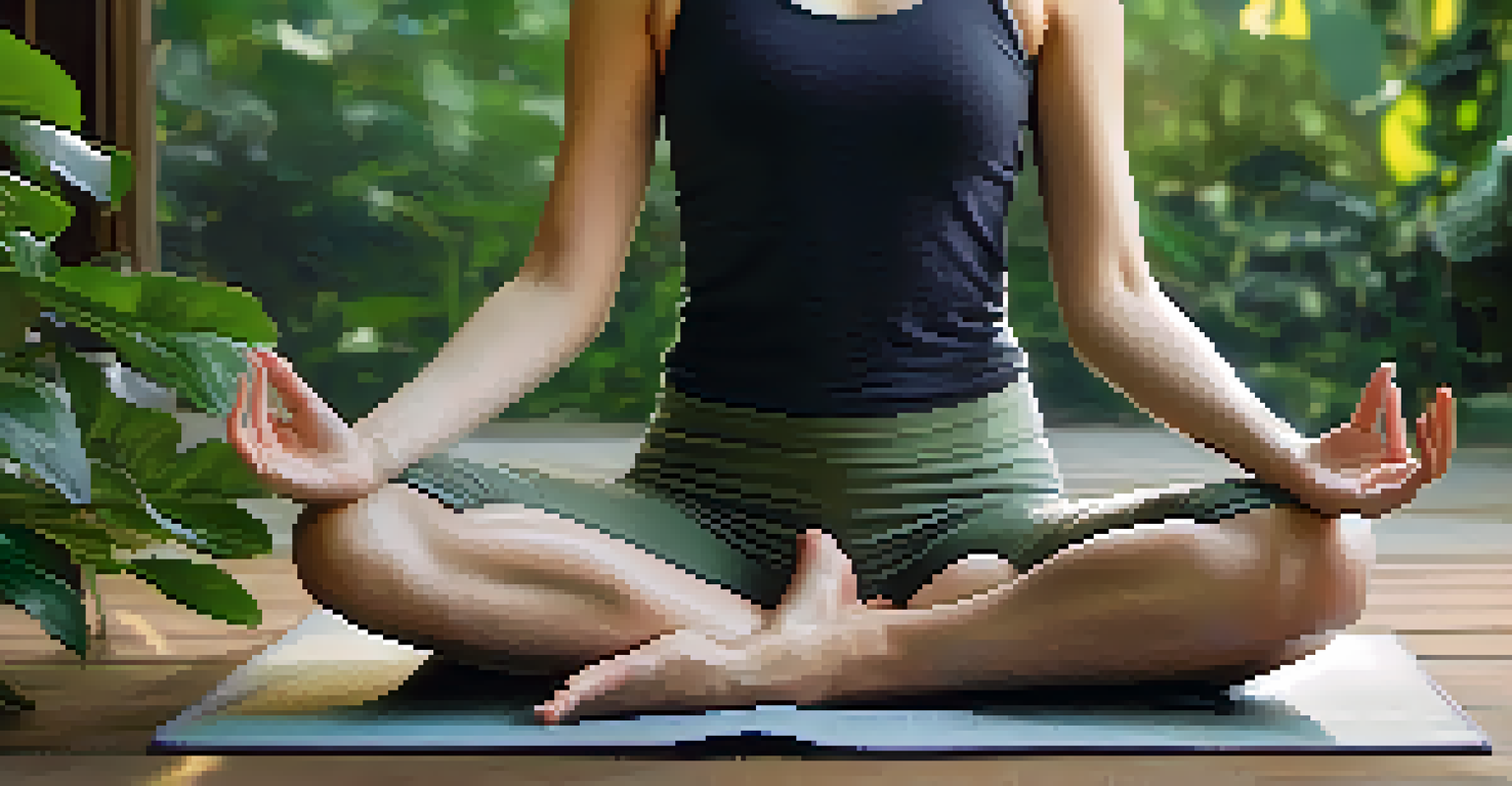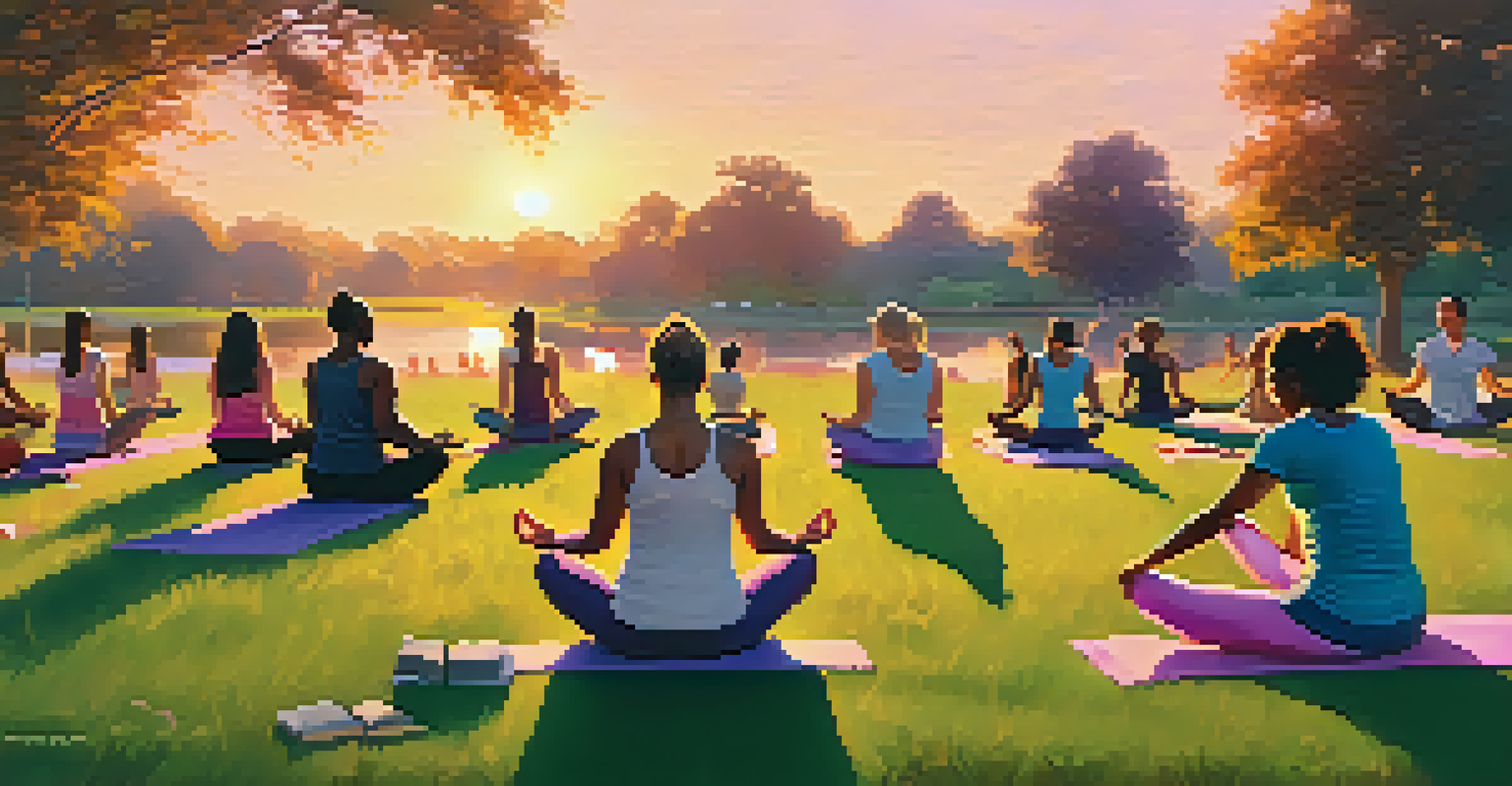Yoga for Social Anxiety: Finding Connection Through Movement

Understanding Social Anxiety and Its Impact
Social anxiety can feel like a heavy weight on your chest, making it tough to connect with others. It's that nagging worry about being judged or misunderstood in social situations. This feeling can lead to isolation, as individuals might avoid gatherings or even day-to-day interactions.
Yoga is the journey of the self, through the self, to the self.
Many people experience these feelings at some point, but for some, it can be a constant battle. The good news is that there are effective ways to cope and find relief. One such method is yoga, which offers both physical and mental benefits that can help ease social anxiety.
By incorporating mindful movement and breathing techniques, yoga helps calm the mind and body. This can create a sense of safety and grounding, making it easier to face social situations with confidence.
The Role of Yoga in Reducing Anxiety
Yoga is not just about stretching; it's a holistic practice that promotes relaxation and mindfulness. When you step onto the mat, you're invited to tune into your body and breath, creating a space free from judgment. This practice can significantly reduce feelings of anxiety and stress.

Research has shown that yoga can lower cortisol levels, the hormone primarily responsible for stress. By engaging in regular yoga sessions, individuals often report feeling calmer and more centered, which can translate into improved social interactions.
Yoga Eases Social Anxiety
Incorporating yoga into your routine can help calm the mind and body, making social interactions feel more manageable.
Moreover, yoga teaches us to focus on the present moment, allowing us to let go of worries about the past or future. This shift in mindset can empower those with social anxiety to approach social settings with a more relaxed attitude.
Building a Supportive Community Through Yoga
One of the beautiful aspects of yoga is its community. Whether you join a class at a local studio or participate in a virtual session, the shared experience can foster connection. This sense of belonging is vital for those struggling with social anxiety.
The mind is everything. What you think you become.
In a yoga class, everyone is there for a common purpose: to find peace, strength, and balance. This shared goal can help break down barriers and create a supportive environment where individuals feel accepted and understood.
Connecting with others who share similar experiences can be incredibly healing. As you practice together, you may discover new friendships and support systems that help you navigate social situations with greater ease.
Mindfulness: The Key to Overcoming Anxiety
At the heart of yoga lies mindfulness—the practice of being fully present in the moment. This awareness can be a game-changer for those dealing with social anxiety. By focusing on your breath and body during yoga, you can learn to quiet the mental chatter that often fuels anxiety.
Mindfulness trains your brain to observe thoughts without judgment, allowing you to detach from negative patterns. Over time, this can help you respond to anxious thoughts with more compassion and understanding.
Community Support Through Yoga
Participating in yoga classes fosters a sense of belonging, which can be crucial for individuals struggling with social anxiety.
Incorporating mindfulness into your daily routine, even outside of yoga, can further reduce anxiety. Simple practices like deep breathing or short meditation sessions can help you stay grounded in social situations.
Yoga Poses That Help Alleviate Anxiety
Certain yoga poses are particularly effective in calming the mind and body. Poses like Child's Pose, Legs-Up-the-Wall, and Corpse Pose promote relaxation and can be easily practiced at home. These poses encourage deep breathing and a sense of surrender, which can be beneficial for those feeling anxious.
Furthermore, gentle flows and restorative yoga can help ease tension in the body. As you move through these poses, you may find that your mind gradually quiets, allowing you to focus on the present moment.
Incorporating these poses into your routine can create a sense of calmness that carries over into your daily life. You may find it easier to approach social situations with a more open heart and mind.
Establishing a Consistent Yoga Practice
Consistency is key when it comes to reaping the benefits of yoga. Establishing a regular practice, even if it’s just a few minutes a day, can significantly impact your mental well-being. Start with short sessions that fit your schedule, gradually increasing the duration as you become more comfortable.
Consider exploring various styles of yoga to find what resonates with you. Whether it's restorative, hatha, or vinyasa, each style offers unique benefits that can contribute to reducing anxiety.
Mindfulness Reduces Anxiety
Practicing mindfulness through yoga allows individuals to detach from negative thoughts and embrace the present moment.
Additionally, setting realistic goals can help maintain motivation. Celebrate small victories, like completing a certain number of sessions each week, to keep your practice enjoyable and fulfilling.
Embracing the Journey Towards Connection
Overcoming social anxiety is a journey, and yoga can be a powerful ally along the way. As you practice, allow yourself to embrace the process rather than rushing to the finish line. Each step you take on the mat is a step towards building resilience and fostering connection.
Remember that it's okay to have setbacks; they are part of the learning experience. By continually showing up for yourself through yoga, you create a foundation of self-compassion and understanding that can extend into your social interactions.

Ultimately, yoga can help you cultivate a deeper connection with yourself and others. As you build confidence on the mat, you'll likely find that it translates into your ability to engage with the world around you.